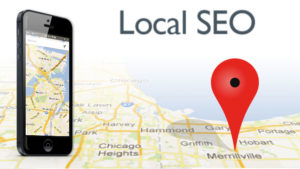As the digital world is developing, many of its facets are becoming major components instead. Be it different marketing strategies for different social media platforms, branching the single desktop SEO into mobile and local SEO, or new ways to market and promote a brand, unprecedented changes are being implemented on a daily basis. The aim remains the same: to utilize each and every opportunity internet can present us to grow.
With the branching of local SEO, strategies for optimizing the internet have changed considerably for brands. Now local dominated search results, reviews, and distance from the centroid have become the focus as city keywords are coming to the forefront. This has segregated local and national SEO and experts believe that the core strategies for both differ.

However, in case your business does have a publicly listed physical address, some incredible link opportunities existing outside your niche await you. Every single link counts and a cavalcade of potential link opportunities are thus generated based solely on your physical address.
Additionally, managing multiple location-specific websites for a single business can be a painful and time-consuming task. Handling such a business’s SEO can be an even more painstaking task as a compounded effort would be required to manage each individual website. And since it is virtually impossible for each and every web page to rank well, state and city-specific pages are the preferred options. As the experts at TribeLocal state, using local links to your domain indeed help a website rank well nationally.
Some of the key requirements before one can begin with the process include:
· A legitimate, permanent physical address.
· A unique, permanent phone number which is local to the area.
At least one 100% unique, high value page with SEO optimized content for the geo-targeted keyword.

Another important consideration is deciding on the URL structure. Both subdirectory (brand.com/city/) and subdomain (city.brand.com) are essentially the same and the decision is based entirely on preference.
With these boxes checked, one can proceed to focusing on items that local SEOs are most familiar with. Each of these tasks needs to be performed individually for every city that one is optimizing for:
· As is the case with any website, content is the topmost priority. Unique content is essential not just for the homepage but for the page designated to each individual city.
· Ensure that the city’s name, address, and phone number are displayed clearly on all the city pages. Also, the above information of no other city must be found in the subdomain or directory. In case you want to show nearby locations as well, it is advisable to list them as images or add a link to them.
· Configure Google Webmaster Tools for all the cities.

· Create Google+ local pages for each of the locations. The individual Google+ pages must not contain simply the root domain but also display the particular city’s unique URL.
· Build links like you usually would, treating each city subdomain or directory like a website on its own.
· It is important to add only geo-specific content in the city pages. Normal content is better placed on the root domain or a directory and not in a city sub domain.
· Always treat city subdirectories or subdomains as individual, self-contained websites even if they are managed with a single content management system. This involves posting city-specific content in the particular city’s web page.
While these tactics help you rank well nationally with local links, there are some errors one might be prone to as well. Here are some steps that can sabotage your local SEO efforts to a great extent:
· Duplicate content: Duplicate content, including a few recycled keywords here and there, works well initially but more often than not, Google catches you. Not only does it harm the SEO but same piece of content at multiple places looks unimpressive as well.

· Putting any city information in your home page title tags: Google has admitted to modifying titles to make them more logical for the end user. So including the name of a city in home page title tags can be modified and create much more confusion than it creates traffic.
· Listing name, address, and phone number on a different geo page: Committing such a mistake would provide an end user completely different contact information of a company’s city branch than the city he or she is residing in.
Building a domain with local links helps national business maintain national relevance while providing them with local edge as well. With local search queries on the rise and local businesses taking to the internet as well, it has become essential for brands to serve local purposes as well. So build your SEO with equal focus to local link as well to reap even national benefits.



